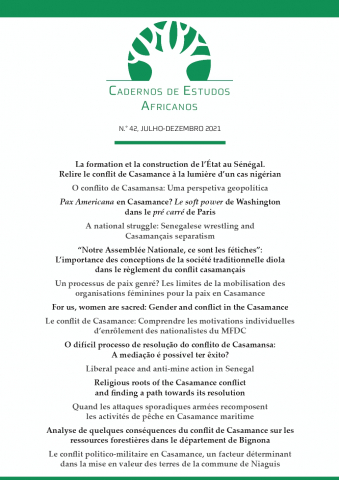For Us, Women are Sacred: Gender and conflict in the Casamance
DOI:
https://doi.org/10.4000/cea.6644Abstract
The paper examines the changes of gender relations and power inequalities in a context of nearly forty years intermittent war. It shows that gender roles have been both changing and consolidating during the conflict. Furthermore, analysis reveals a multipolar instead of a bipolar local conceptualisation of gender. Social youth differs from breadwinners on the male and mothers on the female side. The conflict has catalysed the development of new social positions for women (cheffe de ménage), new pathways to achieve social adulthood for men (combattant), reinforced customary gender relations (workload, role in the community), but it also thwarted gendered synergies in the traditional division of labour (breadwinner, childcare); being one of the contested ideological values, the conflict has finally – with certain exceptions – rather reinforced than weakened the protection of women against SGBV.
Additional Files
Published
Issue
Section
License

This work is licensed under a Creative Commons Attribution-NonCommercial-ShareAlike 4.0 International License.
I authorize the publication of the submitted article/review of which I am the author.
I also declare that this article is original, that it has not been published in any other way, and that I exclusively assign the publication rights to the journal Cadernos de Estudos Africanos. Reproduction of the article, in whole or in part, in other publications or on other media is subject to the prior authorization of the publisher Centro de Estudos Internacionais do Iscte - Instituto Universitário de Lisboa.

